If you’ve been scrolling through the endless stream of family dramas and feel like you’ve seen every trope under the sun, prepare to have your expectations shattered. Love of Our Bloodline, the latest powerhouse from Ego Nwosu Tv, isn’t just another Nollywood romance; it’s a profound, deeply resonant study of how destiny—sometimes delivered by tragedy—forces the most duty-bound individuals to forge their own paths to happiness.
This film traps us immediately in a world where tradition is a cage and love is a commodity. The central conflict is established with brutal clarity: the beautiful and quiet Hassana is slated to marry Mustafa, the elder son of the Aliyu family, in an arranged union designed to settle a crushing family debt. But what happens when the chosen path is wiped out by fate, and the true test of love falls to the person no one—least of all the family—expected?
This review is your deep dive into the characters, the impossible plot twist, and the subtle, breathtaking slow-burn romance that makes Love of Our Bloodline mandatory viewing.
1. The Three Pillars of Conflict: Setting the Impossible Stage
The film’s opening act masterfully introduces the high-stakes world governed by Baba’s (Hassana’s father) patriarchal decree. The marriage is not about love; it’s a ledger entry, a harsh reality conveyed by the sheer weight of expectation on Hassana.
Mustafa: The Pillar of Duty (The NAF Officer)
Mustafa is, initially, the perfect arranged groom. He is disciplined, successful, and the embodiment of the family’s honor. His life is built on Structure, Service, and Responsibility. When he speaks, it’s with a controlled formality that suggests he views this marriage as another mission to complete for his family. He represents the immovable object of tradition, and the narrative cleverly uses his profession—the Nigerian Air Force—as a metaphor for his adherence to rules and hierarchy.
Khaled: The Shadow of Desire (The Rebel Artist)
Contrast this immediately with Khaled, Mustafa’s younger brother. Khaled is the charismatic rebel, the artist who dismisses his brother’s life as being “no fun.” He operates in the shadow of irresponsibility, perpetually searching for himself and his art. This contrast is the film’s first brilliant stroke. While Mustafa is away on duty, Khaled uses his easy charm to flirt with Hassana, offering her a forbidden glimpse of a life free from constraints.
Scene Analysis: The First Encounter: The interaction between Khaled and Hassana in the garden is electric. His playful persistence, his interest in the “secret” to her soft hands (aloe vera and coconut oil), and the delightful “rich chuckle” he extracts from her are all markers of an instant, passionate connection. This initial chemistry feels like the kind of reckless, immediate love that moviegoers usually root for. The narrative baits us into believing this is the true romance.
Hassana: The Trapped Participant
Hassana starts as the most passive character. She is quiet, polite, and accepts the decisions made for her, reinforcing her father’s belief that men prefer a “dossile” woman. Her secret dream of attending nursing school is a quiet ticking clock under the surface, a suppressed desire that represents her yearning for agency and purpose outside of marriage and the home.
2. The Tragedy, The Pivot, and The Impossible Plot Twist
The engine of this drama explodes around the 23-minute mark with the news report: Mustafa’s helicopter crash.
The Void and The Forging of a New Romance
The sudden, brutal absence of Mustafa creates a profound emotional void. This isn’t just a convenient plot device; it’s the crucible where Hassana and Khaled’s relationship is forged. Their bonding occurs not over frivolous dates, but over shared grief, long talks, and Khaled’s attempt to distract her from the impending doom.
Scene Analysis: The Bicycle: Khaled’s surprise of a bicycle and his offer to teach Hassana how to ride is a beautiful, deeply symbolic moment. The bicycle is a metaphor for freedom and movement, something she lacks. It confirms that Khaled sees her desire for liberation, and in that shared activity, their connection deepens into love.
By the time they secretly agree to marry, the audience is fully invested in their rebellious romance. They’ve earned it through shared pain and genuine connection.
The Phoenix Walks In: Mustafa’s Return
The wedding planning for Khaled and Hassana is underway—a testament to how quickly life moves on. Then, the impossible happens. Mustafa, haggard and traumatized, returns from the dead. This is the seismic shock that changes the film from a standard romance into a complex moral drama.
The emotional confusion is palpable. The Aliyu family decides to hide the engagement from the fragile, recovering Mustafa. This choice—driven by the mother’s protective instincts and the family’s deeply rooted fear of disrupting the status quo—is morally questionable, but it’s entirely human and believable.
The Patriarchal Mandate: Forced Choice
Hassana’s father, seeing his debt solution re-materialized, swiftly forces the issue. The scene where Baba demands she marry Mustafa, threatening to disown her if she refuses, is heartbreaking. It strips Hassana of all agency, treating her like a chess piece: “I am your father, I know what’s right for you.”
This coercion leads to the desperate, reckless plan to elope, a plan that seems like the only escape route for true love.
3. The Great Betrayal and The Slow-Burn Redemption
The film’s true brilliance lies not in the shock of Mustafa’s return, but in the painful, necessary pivot that follows: Khaled’s abandonment and Mustafa’s quiet compassion.
Khaled’s Fateful Choice
The elopement plan is cut short by a call on the highway. Khaled reveals he was accepted into an art residency in Paris—a dream he’d “hoped for a really long while.” He chooses his art over Hassana.
This moment is the pivot point. It retrospectively re-characterizes Khaled’s “free spirit” as self-absorption. His initial charm and passion were ultimately shallow, unable to withstand the weight of real-life commitment or sacrifice. Hassana’s tearful realization—”He left me”—is a powerful, devastating scene that frees the audience to look for love elsewhere.
The Wedding Night Pact: An Act of Kindness
Hassana marries Mustafa, resigning herself to a duty-bound, loveless life. The climax of this act is the wedding night confession.
Mustafa reveals he had observed their connection—the portrait, the hand-holding, the visible misery on her face. Crucially, he steps out of the role of the entitled husband and into the role of a partner. They make a pact: they will maintain the facade for a few months to protect her from Baba’s wrath, after which he will tell his father the marriage failed (his fault, not hers).
This moment redefines Mustafa’s character. His discipline is paired with profound empathy. He doesn’t demand her love; he offers her respect and protection.
4. Character Evolution: Love Built on Alignment
The final act is a masterclass in the slow burn—a romance built on shared goals, emotional safety, and mutual encouragement, not reckless passion.
The Investment in Her Future
The most significant turning point for Hassana’s character arc is Mustafa’s support for her dreams.
The Nursing School Form: Mustafa silently presents Hassana with the application link, and then reveals he will pay for it. This is the anti-Baba move. He doesn’t just respect her dream; he invests in it, directly challenging the patriarchal limitations placed upon her. This action speaks louder than any declaration of love Khaled ever made.
The Driving Lessons: Just as the bicycle symbolized liberation with Khaled, the driving lessons with Mustafa actualize it. He literally puts her in the driver’s seat of her own life. This shared, gentle intimacy is where their bond solidifies, moving past the trauma and the pact.
Mustafa’s Vulnerability
The most poignant scene demonstrating their new bond is when Mustafa wakes up from a nightmare. He is no longer the strong, emotionless officer but a vulnerable man recounting the horror of the crash and his fight to survive. Hassana, now a compassionate wife, gently soothes him, urging him to sleep.
In that moment, they are equals. She offers emotional care, and he offered professional empowerment. The final morning scene, where they share a gentle, knowing intimacy, and Mustafa declares he is “willing to explore whatever this is,” confirms that duty has given way to destiny.
5. Production Value: A Clean and Emotional Aesthetic
Love of Our Bloodline utilizes its production elements effectively to underscore the emotional narrative. The cinematography is clean, focusing on tight close-ups to capture the raw emotional shifts of the actors.
Set Design and Costuming: The opulent, carefully maintained homes and the rich, flowing costumes (especially the gorgeous wedding attire) communicate the wealth and status of the families involved. This visual grandeur heightens the sense of confinement for Hassana, emphasizing that her cage is gilded.
Performance Quality: The lead actors deliver compelling performances. Ego Nwosu portrays Hassana’s journey from quiet despair to burgeoning confidence with nuance. Maurice Sam (Mustafa) is outstanding in his transition from a stoic officer to a gentle, wounded husband, earning the audience’s respect. The chemistry between Hassana and Mustafa is a beautiful slow burn—it’s not flashy, but it’s undeniably grounded and real.
6. Verdict and Call-to-Watch
Love of Our Bloodline succeeds because it subverts expectations. It leads us to believe the film is about escaping duty for passion (Khaled), only to reveal it is about finding love through duty and respect (Mustafa). It delivers a powerful message: true partnership is built on alignment, shared values, and the commitment to elevate your partner’s dreams.
The ultimate payoff—the time-jump to the celebratory ending where Mustafa and Hassana are not only happy but expecting twin baby girls—is a deeply satisfying conclusion. Even the return of Khaled, now chastened and paired with his own partner, serves only to confirm that Hassana made the right, if painful, choice. She chose the man who saw her potential and helped her achieve it.
If you are looking for a drama that gives you both the heartbreak and the fulfillment, look no further. This film is a compelling argument that the best love stories aren’t always the fastest ones—sometimes, they’re the ones that take the time to heal and grow.
Rating: ★★★★☆ (4.5/5 Stars)
Call-to-Watch: Stop scrolling and queue this one up. Grab your favorite comfort snack and prepare for a drama that redefines what a “happy ending” truly means. You won’t regret watching this powerful story of love and liberation!
#NollywoodTimes
#NollywoodDrama
#LoveOfOurBloodline
#SlowBurnRomance
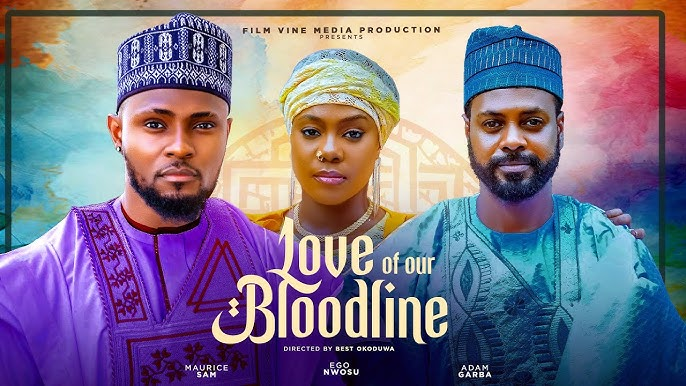


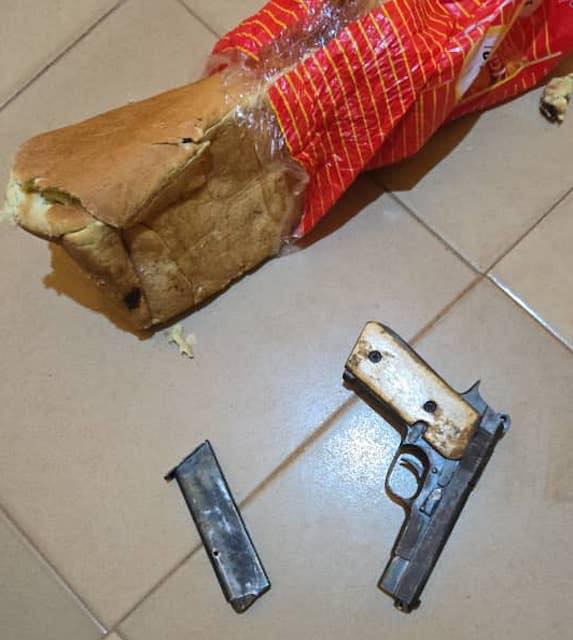

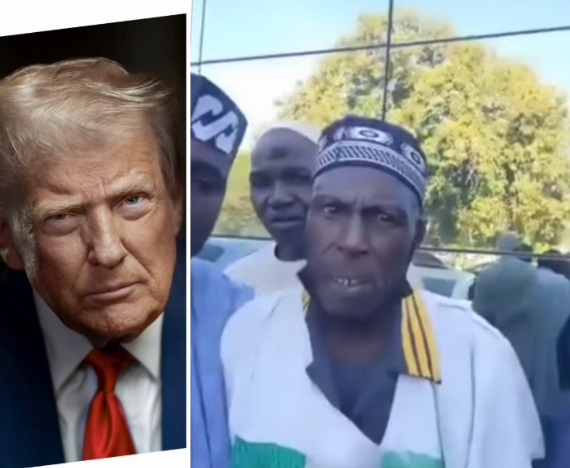





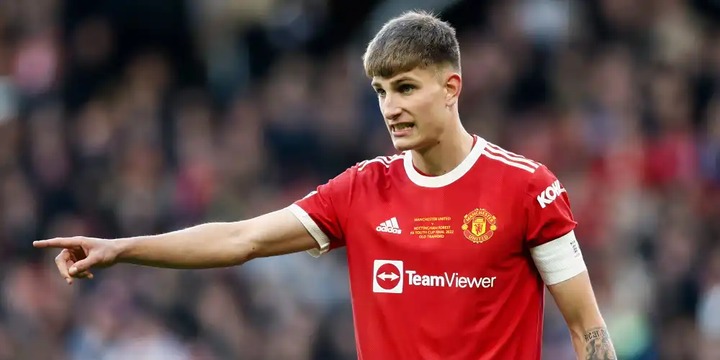

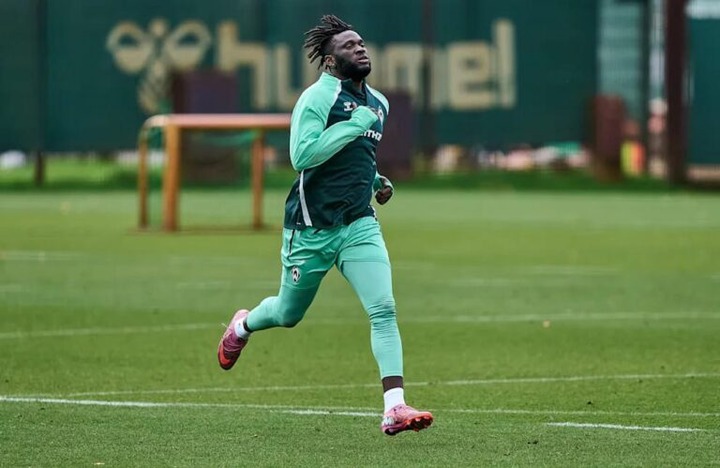
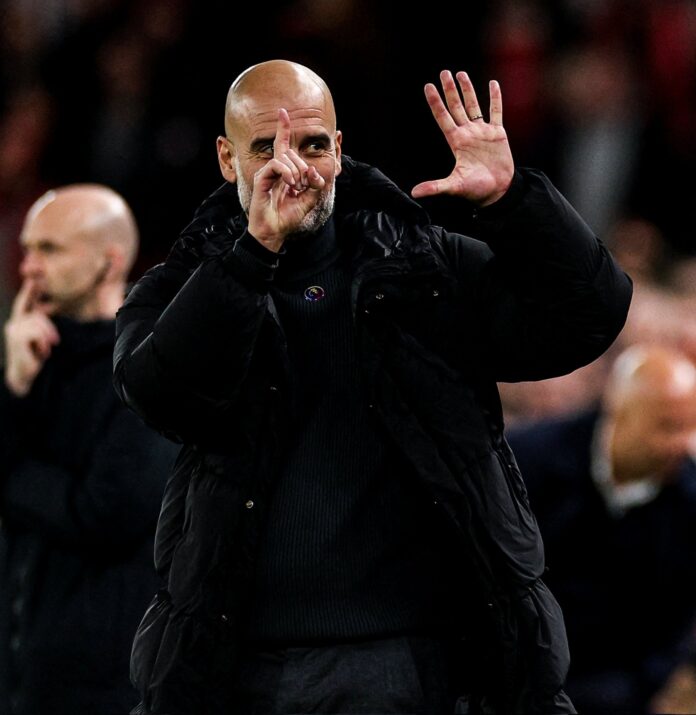
Leave a Reply